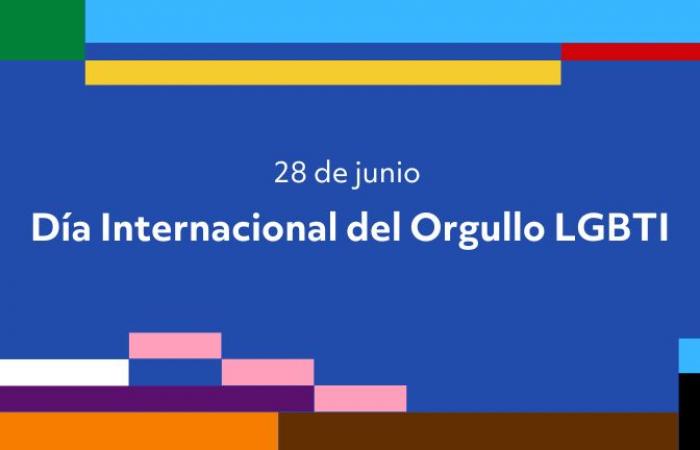
June 28, 2024
Every June 28, International LGBTI Pride Day is an opportunity to promote the protection of human rights for lesbian, gay, bisexual, trans, intersex (LGBTI) people and other identities.
The Stonewall Rebellion of June 28, 1969 in New York City marked a milestone in the fight for LGBTI rights, a response by the LGBTI community to police violence based on sexual orientation and gender identity. This event was the beginning of a global movement for LGBTI rights.
Since 1969 to date, countries in the region and the world have made some progress in terms of decriminalization, legislation, regulatory frameworks and public policies for access to the rights of this population; however, in recent years, With the growth and advance of anti-rights groups, the spread of hate speech and the political situation in the region, there have been some setbacks in terms of rights and an increase in acts of violence against LGBTI people. Violence and crimes based on sexual orientation and gender identity are hate crimes.
There are still countries that continue to have some form of penalization against people who manifest a sexual orientation other than heterosexual, as well as a gender identity other than that assigned by sex at birth. In addition to the non-compliance with laws and the impact on public policies aimed at this population.
The United Nations has urged States to take urgent measures to end violence and discrimination against LGBTI people. In this regard, it is worth highlighting a series of UN Resolutions on sexual orientation, gender identity and sex characteristics, adopted since 2003, as well as a series of principles that promote the defence of the rights of LGBTI people, known as the Yogyakarta Principles.
Since 2007, MERCOSUR countries have debated and reflected on the rights of LGBTI people. In 2010, a Working Group was formed within the scope of the Meeting of High Authorities on Human Rights of MERCOSUR (RAADH), and in 2015 this Working Group was formed into a Permanent Commission, with the objective of “encouraging the integration of public policies to promote and protect the rights of the LGBTI population and confront homolesbotransphobia.”
The MERCOSUR Institute for Public Policies on Human Rights (IPPDH) has worked to promote the rights of LGBTI people. Among the actions carried out is the LGBTI document: Regional compendium of good government practices for guaranteeing and protecting rights. Currently, work is being done on identifying regulations, jurisprudence and public policies in each country on the rights of LGBTI people, a mandate received from the High Authorities on Human Rights of MERCOSUR.
In 2017, the IPPDH Social Participation Forum held the Fifth Public Consultation on the Rights of LGBTI People, a space that brought together more than 90 representatives of civil society organizations from MERCOSUR who discussed coordinated actions in the region to promote and protect the rights of LGBTI people.
On this International LGBTI Pride Day, the IPPDH reaffirms its willingness and commitment to support States in creating and coordinating public policies to prevent violence, discrimination and hate speech based on gender identity and sexual orientation, while supporting civil society in its struggle for further advances in rights for a full life for all LGBTI people.

